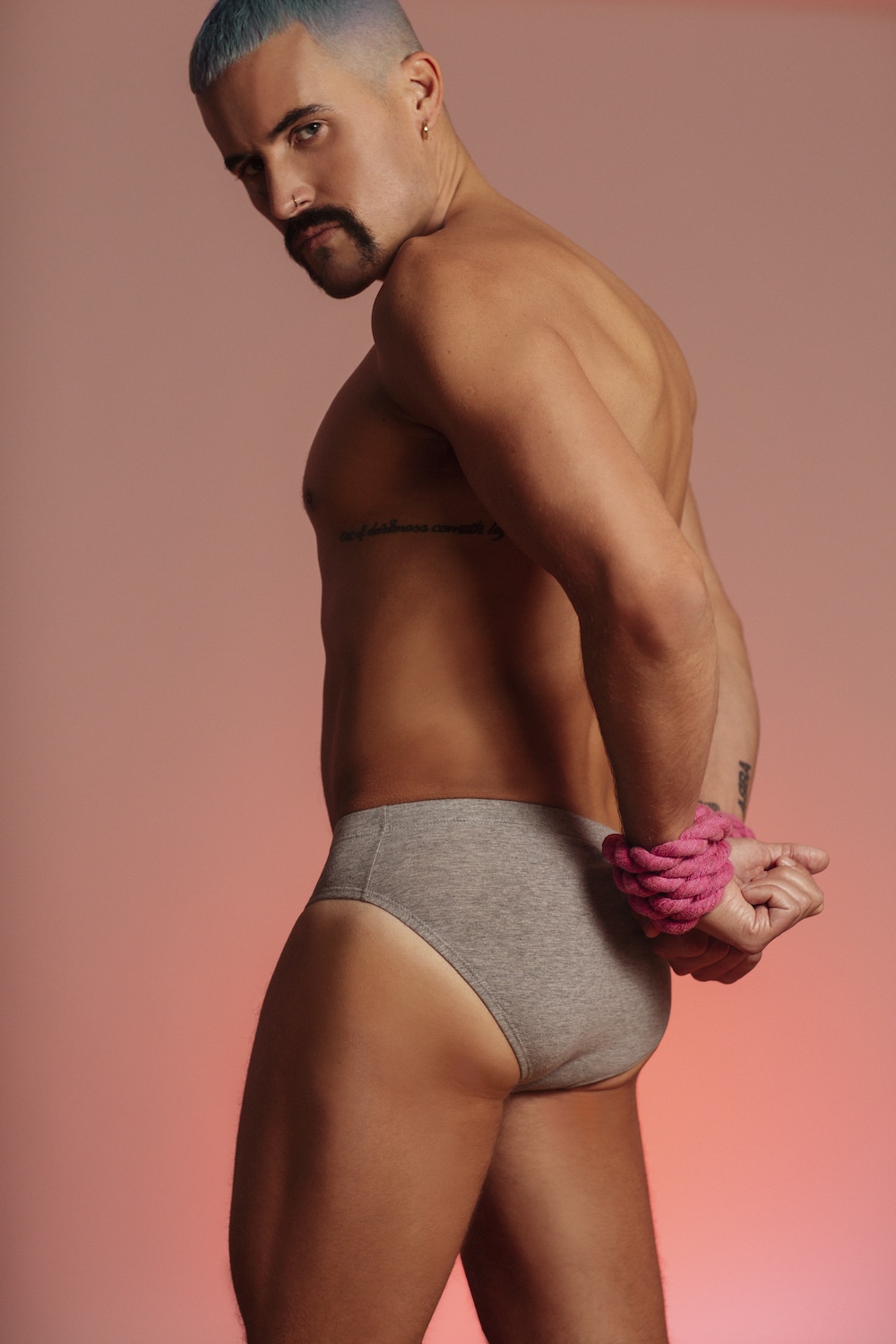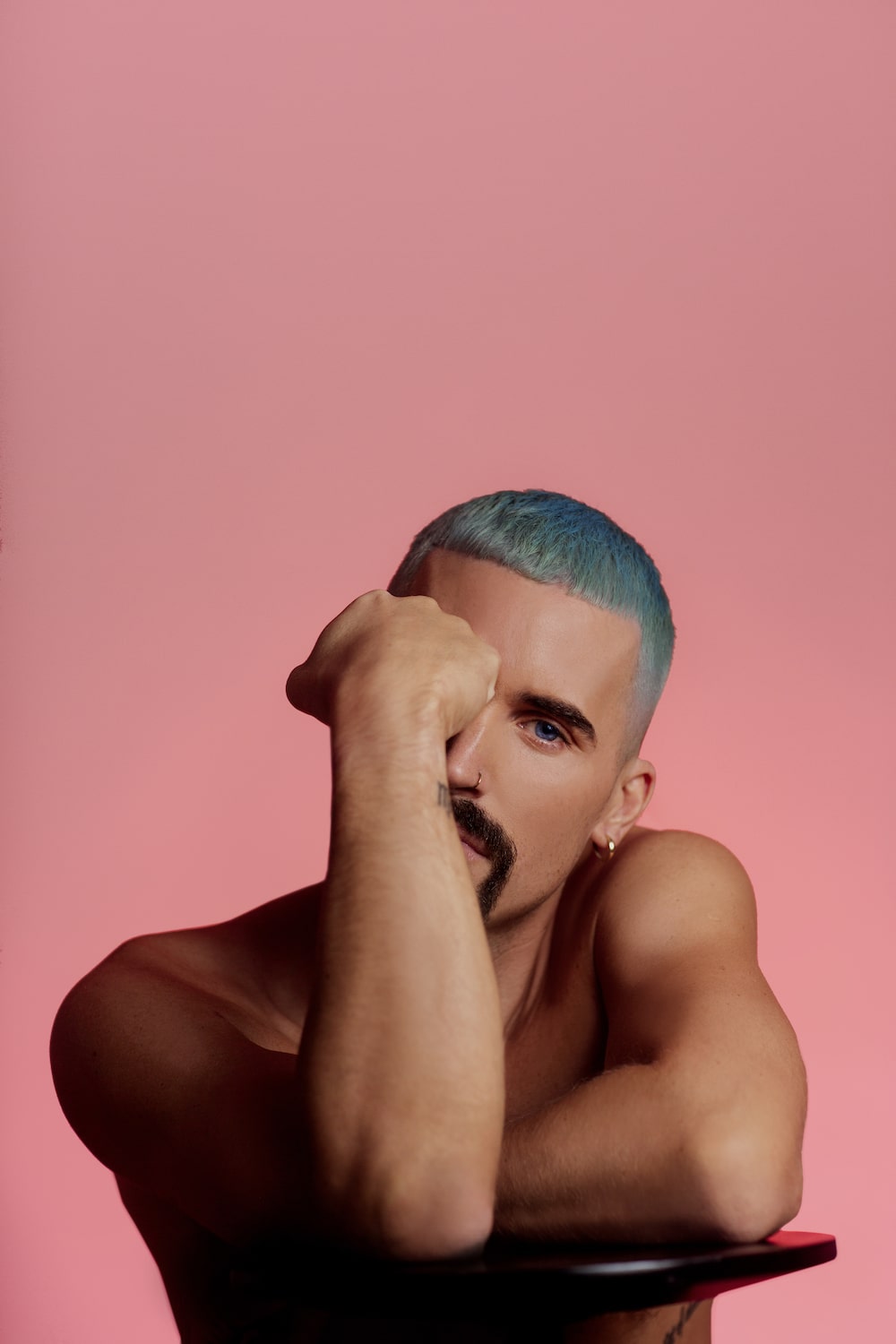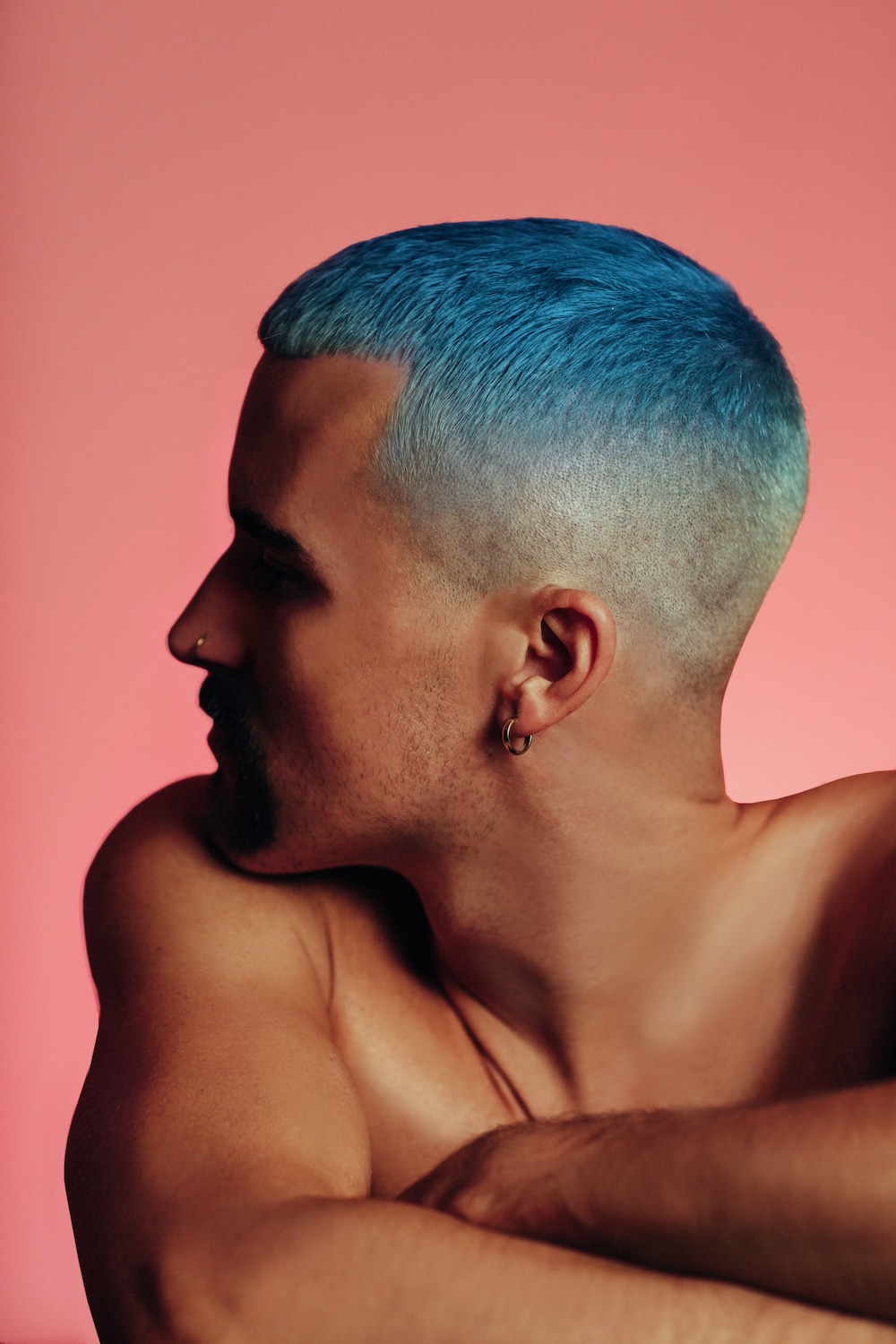Gay pop sensation Tom Aspaul on disco, hook-ups and whether he’d do Eurovision

Tom Aspaul. (Provided)
Tom Aspaul was nervous when faced with the mammoth task of following up his debut album Black Country Disco.
That album was just one of many disco-infused records that landed in 2020 when the world was still struggling through the early days of the pandemic. What set Black Country Disco apart was just how autobiographical it was – on the album, Tom sings about the dissolution of his long-term relationship and his decision to leave London for Wolverhampton.
It was an instant success – Tom won critical acclaim and an ardent queer fanbase for his shimmering tracks navigating love, heartbreak and change.
The question is, where do you go from there? Well, first Tom gave Black Country Disco the obligatory remix treatment, and then he did a short tour around the UK once COVID restrictions had been eased. Eventually, he retreated to his home in Wolverhampton and started pulling songs together for the always nerve-wracking second album.
Right from the get-go, Tom decided to go in a completely different direction. Life in Plastic sees him move away from the disco sounds fans know and love into glittering europop.
His second album tackles some big themes, from gay sex to fickle friendships, but Tom was still nervous fans wouldn’t relate to it.
“It did really concern me that people might think because I’m doing a europop album, that there isn’t any depth to it and something’s fundamentally gone. But if anything I’d say there’s more depth in Life in Plastic than Black Country Disco. The first album was about one particular event, but actually the more interesting part of that was the fallout of that break-up and the relocation from London.”
Life in Plastic is an intensely personal album – Tom thinks that’s why he tried to make the sound so fun and carefree.
“Maybe that’s the reason I’ve sugarcoated it and made it so plastic sounding – because I’m so nervous to talk about these topics in a way that would be more direct. I’d be afraid of exposing myself. That’s why I’ve deflected it by making it so bright and sparkly and sexy – I’m literally in bondage gear on the album cover.”

Tom Aspaul. (Provided)
The songs on Life in Plastic were written during the second lockdown in the UK.
“I was getting older and feeling quite contemplative,” Tom says. “I almost feel like with Black Country Disco coming out and me really pushing myself as an artist, it’s been like this second puberty. I’ve grown up quite a lot. A lot of it is looking back over that period of time.”
The album also deals with things that are specific to the gay experience – Life in Plastic interrogates the intense pressure gay men feel around their appearance, money, and success.
“It is a cliché but a lot of gay men, if they don’t have children, they seem to have a lot of time to look after themselves and have these really lavish lifestyles, and that’s a topic that interests me. I wanted to explore why that happens, which I guess is where the Life in Plastic name comes from.”
The reality is that I do live at home with my parents and I do everything myself.
Most of the time, people are projecting an image of themselves to the world that’s different from reality. Tom was eager to explore the differences in the way he presents himself to the world and what the reality is actually like.
“I present myself to the world as this pop star, but the reality is that I do live at home with my parents and I do everything myself [behind the scenes], even though it doesn’t look like I do,” he says.

Tom Aspaul. (Provided)
Tom explores those themes in “Millionaire”, a song that was originally written more than a decade ago, but shelved. He ended up rewriting it for Life in Plastic.
“It was a throwaway pop song about not wanting to be a flashy millionaire. That sounds really silly looking back but that’s what it was.”
When he started writing Life in Plastic, he listened to some old demos for inspiration so he could get a sense of the journey he had been on as an artist.
“Something about the verse in ‘Millionaire’ resonated with me considering what my situation is currently. It really rings true about how I feel about a lot of people. I’m not going to name any names, obviously, but there seems to be quite an obsession with a celebrity lifestyle and a flashy way of existing and I’m really not interested in that. I might come across as materialistic, but I feel like I’m really not a materialistic person at all.”
Whereas Black Country Disco charted the dissolution of a romantic relationship, Life in Plastic deals with the painful and tricky topic of losing friendships. Tom wanted to explore that theme because of his own experience, particularly during the pandemic.
“I live away from London and all these big cities, so I don’t really have a community where I live. I don’t have any friends that live nearby so I really do depend on these long distance relationships – I travel to London or Manchester or Birmingham every other weekend.”

Tom Aspaul on the cover for Life in Plastic. (Provided)
The pandemic made this impossible at times, which made Tom realise that some of his friends were what he calls “disco friends” – people who are good for a night out, but who vanish the second the going gets tough.
“They like you because they can go for a drink with you and have fun. There is a place for people like that in your life and I’ve always appreciated people like that, but in the song ‘Let Them (It’s All Love)’, I’m not really criticising them. I’m just saying, it’s fine. It’s good to know where you stand.”
A second song, called “Statues”, deals with the pain of losing friends in the aftermath of a break-up.
“It’s not about what team you’re on because it’s not Brad and Angelina Jolie, but it’s about the fact that it’s natural to gravitate to someone if you live in the same city as them. If someone moves away you’re going to lose touch over time. It was about the way everything seemed frozen in time in London whenever I would come back, but obviously it wasn’t, because everything had changed.”
Life in Plastic talks about pandemic sex
It’s not all about friendship – on Life in Plastic, Tom sings about those transient moments between lockdowns when people were free to have sex once more.
“I genuinely thought it was an interesting topic, the fact that we’d been forced into celibacy for six months, and then you have this window of three months where things are open again and you can see people and touch people,” Tom says.
“In the background you can see the numbers going up and you know there’s this impending lockdown coming. I think we’re all almost burying this in the back of our heads because it was so traumatising, but knowing you’re not going to be able to see or touch or kiss anyone for another few months, that’s a big deal for me. When I would visit London or Manchester, I would just be like, f**king hell, now is the time because you don’t know what’s going to happen. There was just this sense of impending doom, really.”

Tom Aspaul. (Provided)
There’s a lot going on lyrically, and it’s all elevated by vibrant europop. Tom remembers growing up with “glossy, shiny, plastic” songs blaring out of the radio – he wanted to capture that era on this album.
“I felt quite limited in a way by Black Country Disco and the limits to what disco could be. There was only a certain time period you could take references from. With this, I really wanted to move things along. Because so much of the album is me looking back at my adult life. I wanted it to have that nostalgic twinge for the ’90s and the noughties because that’s when I came of age.”
Eurovision was naturally an inspiration for the record
It should go without saying that he was heavily inspired by the music of Eurovision, which is in some ways the home of europop.
“I was incredibly lucky to be on the UK’s professional jury for the Eurovision last year,” Tom explains. “I’m such an obsessive person, when I do something, it’s all I can think about. During a lot of the writing phase, which was May, June and July last year, I was listening to a lot of Eurovision from the ’90s and noughties particularly. These are all perfect three minute pop songs. I love music from Europe and I wanted to bring that through sonically.”
Obviously, he was proud of the UK’s Sam Ryder, who finished in second place at this year’s Eurovision Song Contest – but his favourite of the night was Spain’s Chanel, who captured queer people’s hearts with “SloMo”.
“I loved the performance – for me, that’s what Eurovision is about. It’s about that spectacle, and the fact it was obviously uniquely Spanish, that’s what I love about Eurovision. You can get a sense of what a country’s personality is just by watching a performance.”
Considering how much he loves Eurovision, could Tom ever see himself submitting a song for consideration?
“I would definitely consider writing for the UK,” he tentatively says. “I don’t think that would happen now – I think they’ve levelled up a bit. Amy Wadge did the Sam Ryder one and she works with Ed Sheeran and people like that, so I feel like that ship has sailed. I’d love to write for any European country, I’m not particularly patriotic to the UK.”
As much as he loves Eurovision, Tom doesn’t think he’s the right fit to perform on the stage.
“I put my hands up and say, I don’t think I’d be great. I don’t think I could fill that stage. I can sing but I don’t have a big showy voice, and I can dance, but other people can dance better. Ideally, as I’m sure you could tell, I’d want to do something like Chanel. I would want it to be camp, sexy, fun – but I’m a 35-year-old man from Wolverhampton. I don’t know if I could pull that off!”
Still, who knows what’s down the road? Tom Aspaul’s career has never followed the usual trappings of pop stardom. Maybe Eurovision success is waiting for him down the line.
“I’d never say never,” Tom laughs.
Life in Plastic by Tom Aspaul is out now.

